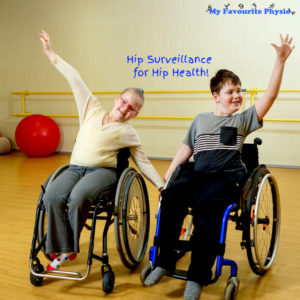08 Sep 🤔Does Your Child with Cerebral Palsy have regular Hip Surveillance Checks🤨 🧐When was the last time Your Child’s Hips were checked to make sure that their Hip Joints are healthy🤨

🧐The Hip Joint is made up of the head of the thigh bone (femur) and the socket of the pelvic bone (acetabulum), together they make up a ball and socket joint at the hip which allows our hips to move is 360 degrees. 🧐Hip surveillance is defined as: “The process of monitoring and identifying the critical early indicators of hip displacement.” Hip displacement refers to the displacement of the head of the thigh bone laterally out of the socket of the pelvic bone and is measured using a migration percentage (MP). Hip subluxation refers to hip displacement where the head of the thigh bone is partially displaced from under the socket of the pelvic bone while hip dislocation refers to hip displacement where the head of the thigh bone is completely displaced from under the socket of the pelvic bone.😳
So Why is Hip Surveillance Important 🧐
1. Hip displacement and dislocation can lead to pain, reduced function and reduced quality of life.😳
2. Children with cerebral palsy (CP) have an increased likelihood of hip displacement.🤨
3. Hip surveillance allows for early detection of hip displacement.💪
4. Early detection enables referral for assessment and/or management.😊
5. Hip surveillance for children with CP should be completed using a systematic approach to ensure that no child with Cerebral Palsy is missed as they grow. 🧒
The frequency of Hip Surveillance is dependent on a child’s age, their gross motor function and the way they are walking.Ideally, Hip Surveillance should start by 2 years of age, when a Cerebral Palsy diagnosis is provided, or when Cerebral Palsy is suspected. Hip Surveillance frequency increases for children with Cerebral Palsy who use wheelchairs as their main form of mobility or when Migration Percentage is increasing. 🤓
To find out more about Hip Surveillance for your Child with Cerebral Palsy, ring My Favourite Physio 📱on (02) 9790 4233 or DM us @myfavouritephysio to speak to one of our Expert Paediatric Physiotherapists today.
